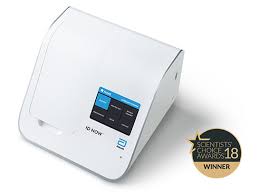Abbott, Author Interviews, Biomarkers, Heart Disease, JAMA / 20.10.2018
New Point-of-Care Troponin Assay Can Rapidly Rule Out Heart Attack
MedicalResearch.com Interview with:
Dr John W Pickering, BSc(Hons), PhD, BA(Hons)
Associate Professor , Senior Research Fellow in Acute Care
Emergency Care Foundation, Canterbury Medical Research Foundation, Canterbury District Health Board | Christchurch Hospital
Research Associate Professor | Department of Medicine
University of Otago Christchurch
MedicalResearch.com: What is the background for this study? What are the main findings?
Response: The assessment of patients with suspected myocardial infarction is one of the most common tasks in the emergency department. Most patients assessed (80 to 98% depending on the health system) are ultimate not diagnosed with an MI. High-sensitivity troponin assays have been shown to have sufficient precision at low concentrations to allow very early rule-out of myocardial infarction. However, these are lab-based assays which typically result in a delay from blood sampling before the result is available and the physician is able to return to a patient to make a decision to release the patient or undertake further investigation. Point-of-care assays provide results much quicker, but have to-date not had the analytical characteristics that allow precise measurements at low concentrations.
In this pilot study we demonstrated that a single measurement with a new point-of-care assay (TnI-Nx; Abbott Point of Care) which can measure low troponin concentrations, could safely be used to rule-out myocardial infarction a large proportion of patients (57%). The performance was at least comparable to the high-sensitivity troponin I assay, if not a little better (44%).
(more…)


